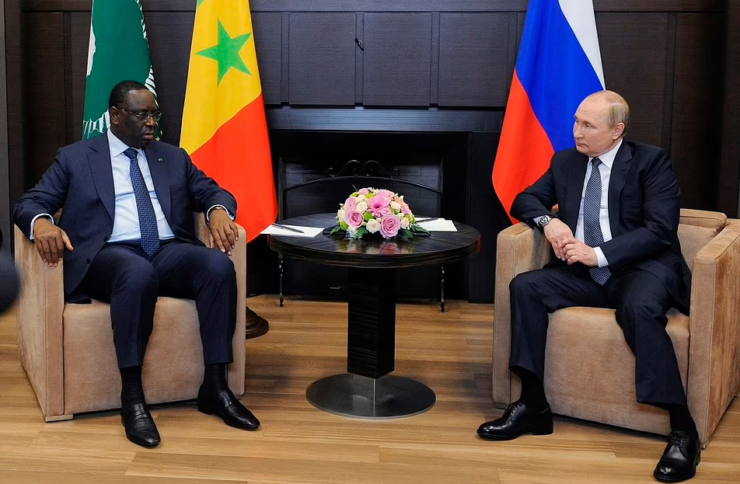
South African President Cyril Ramaphosa recently announced that six African leaders are planning to travel to Ukraine and Russia to try and find a solution to the conflict between the nations. According to the news, Russian President Vladimir Putin and Ukrainian leader Zelenskyy agreed to receive the African peace mission in their respective capitals.
Ramaphosa reportedly briefed the Secretary General of the UN and the African Union on the upcoming meetings initiated by a proposal drawn up by Zambia, Senegal, the Republic of Congo, Uganda, Egypt, and South Africa. The announcement came on the heels of accusations by the United States that SA had supplied weapons to Russia. The U.S. continues to try and force neutral nations to pick sides in the widening Ukraine affair that is crumbling Ukraine.
Reading the broader reporting on these issues, it’s interesting that even Western elite-controlled media, such as the Financial Times, must include facts with the fictional propaganda churned out by Washington, Paris, Berlin, and London. For example, this paragraph from an FT story utters an immutable truth about geopolicy today:
“The contortions South Africa has gone through highlight a broader issue. Developing countries have a legitimate aspiration to push for a new world order that better represents their interests in a multipolar world. They are right to point out that institutions created after the second world war — from the IMF and the World Bank to the UN — no longer reflect our world.”
While FT thinks South Africa is on the verge of imploding, most experts see the coming BRICS meeting and the inevitable growth of that union as assured proof that a multipolar order is taking shape. South Africa’s Naledi Pandor published a piece highlighting how his country and the global south will benefit from an expanded BRICS. Moreover, citizens of SA stand to benefit substantially from being aligned with the BRICS more closely than traditional Western neocolonialists.
“For South Africa, the benefits of BRICS membership are undeniable. Total South African trade with BRICS increased from R487-billion in 2017 to R702-billion in 2021. In addition, to date, the New Development Bank (NDB) has approved 11 projects in South Africa valued at around $5.4 billion to improve service delivery in critical areas.”
Pandor is among the most outspoken critics of the recent International Criminal Court’s (ICC) idiotic warrant issued to arrest Russia’s Putin. Western leadership has undoubtedly noticed that the BRICS have now surpassed the G7 in GDP and that the Ukraine proxy war the United States and Britain are pushing seems to be backfiring.
The BRICS will contribute over 50% of global GDP by 2030, or much sooner should other nations join. Add to this, discussions on replacing the U.S. Dollar with an alternative international trade currency and the Joe Biden administration going to war with Russia will be seen historically as a kind of American Waterloo. Imagine the impact of this situation. Should African nations be vital to mitigating further bloodshed in Ukraine? However, the Biden administration has to have an ‘out’ where Ukraine failed gamble is concerned. So, African countries playing the pivotal role let Biden continue to talk tough while Vladimir Putin gets the neutral Ukraine the Russians sought.
It all makes more sense if we realize that the Western elites have to figure out how to hedge their bets and keep their economic dealings going. Maybe their heisting of the public legacy won’t be as stunningly profitable as before, but they must stay at the feeding trough no matter what. Perhaps this is an oversimplification, but it seems certain Blackrock and other investors counting on owning Odessa and other parts of Ukraine are about to be sorely disappointed if the war continues.
Phil Butler, is a policy investigator and analyst, a political scientist and expert on Eastern Europe, he’s an author of the recent bestseller “Putin’s Praetorians” and other books. He writes exclusively for the online magazine “New Eastern Outlook”.
